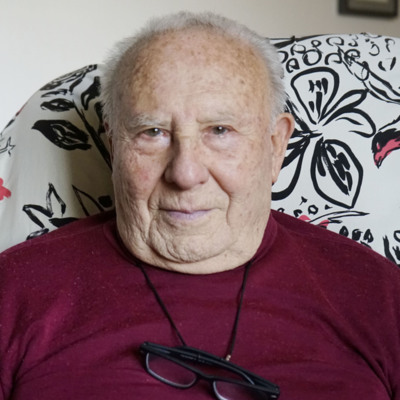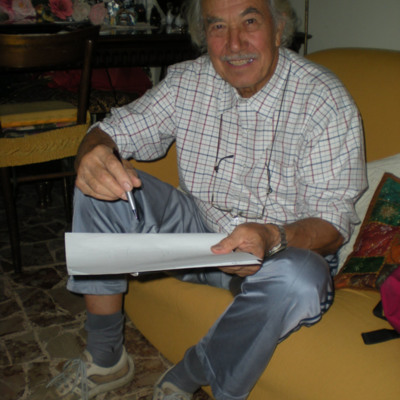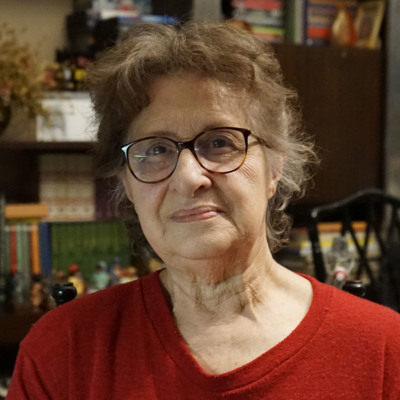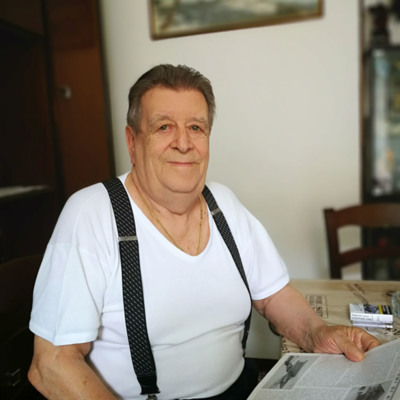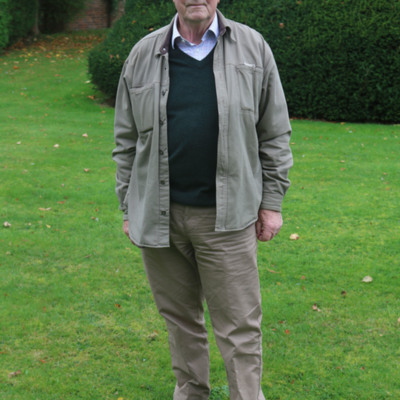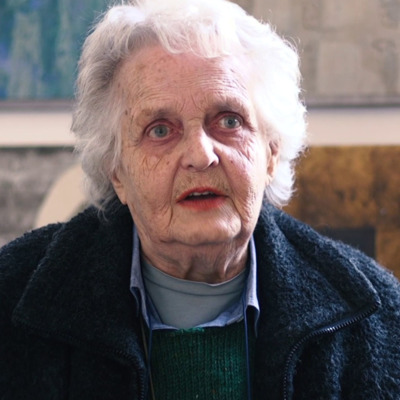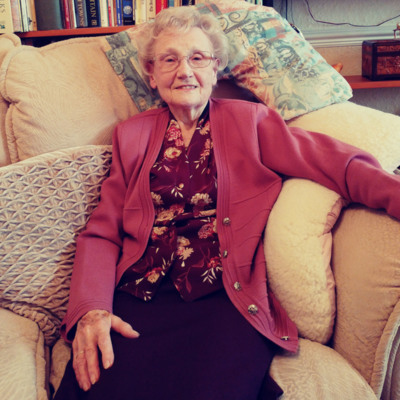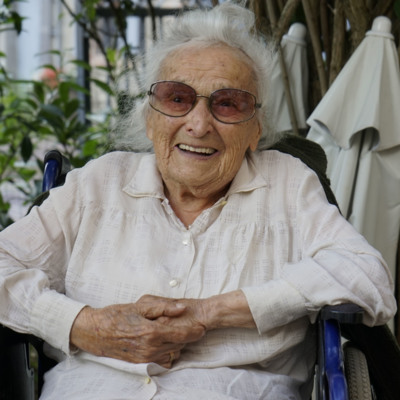Browse Items (32 total)
- Conforms To is exactly "Pending OH transcription"
Sort by:
Interview with a survivor of the Voghera bombings (informant C)
The informant recollects his wartime experiences in Voghera. Claims he has always had the gift of sensing impending events, the first episode being when he told his mother that aircraft are approaching before the siren had sounded, and therefore…
Interview with Alessandro Samorè
Alessandro Samorè reminisces his early life in Milan, Domodossa, Portofino, and Santa Margherita Ligure. Provides details of life in youth fascist organisations, playing with homemade fireworks, and attempts to assemble an improvised scuba gear.…
Interview with an eye-witness of Milan bombings
The informant describes two bombings he eye-witnessed in the Sesto San Giovanni and Niguarda area. During the first, he was in a basement adapted as underground shelter: he recollects women reciting the rosary and a queasy sensation in the stomach…
Interview with Benito Colonna
Benito Colonna reminisces about the bombings of Rimini and other wartime experiences. Benito was with his mother when he witnessed the 1 November 1943 bombing: he saw aircraft approaching and bombing the town, concentrating the attack on the railway…
Tags: bombing; childhood in wartime; home front; shelter
Interview with Carla Fantini
After leaving school, Carla Fantini started working as telegraph operator, which she found a gratifying and thoroughly enjoyable occupation. She describes the bombing war in Milan, stressing widespread destruction and ravaging fires. Reminisces…
Interview with D Jones
D Jones was born in the parish of Manchester, Jamaica. He volunteered for the RAF and went on the SS Cuba to the United States, crossing the Atlantic to Liverpool in June 1944. He went to a former Butlins holiday camp in Filey - there, as ground…
Interview with Ethel and Ted Mawdsley
Relates how they met and courted and continues with description of work and life in wartime while in Deptford in London. Mentions being bombed out and going to shelters. Continues with their marriage in Sidcup and details of life and family after the…
Tags: bombing; home front; love and romance; shelter
Interview with Francesco Bozzi
Francesco Bozzi reminisces about his military training followed by service in Greece. Describes harsh living conditions while in Germany-occupied Crete after September 1943: hard labour, scarce food, punishment, brutalities, being wounded while…
Tags: bombing; forced labour; Resistance; strafing
Interview with Frank Mouritz
Frank was born in Australia in 1923 and joined the RAAF in 1942. After initial training as a pilot in Australia and Canada on Tiger Moth and Anson aircraft he arrived in England. Over the next 12 months he progressed from Oxford to Wellington to…
Interview with Germana Pisa
Germana reminisces her comfortable evacuee life in Gualtieri, supported by local farmers who kept her family well supplied. Describes ditches used makeshifts shelter and daily life in Milan.
Tags: bombing; evacuation
Interview with Gilberto Martina
Gilberto Martina reminisces his childhood in Chiusaforte and in the Canal del Ferro area: disrupted schooling, fear of Germans, subsistence farming, saboteurs, and one of his mates being killed by a bomb found in a pile of litter. Stressed how the…
Interview with Howell Davies
Howell grew up on the Glamorgan coast. After the university air squadron, he joined the RAF in April 1962, training on Provosts at RAF South Cerney. He then went to RAF Swinderby and flew the Vampire T11. He subsequently trained on Vulcans at 230…
Interview with Inge Nicolis
Inge Nicolis, the daughter of a Swedish engineer and an Italian woman, reminisces about her wartime experiences in Milan. She stresses the sense of having been thrown into a tragedy and the anguish of not being able to evacuate Milan on the grounds…
Interview with J Ebanks
J Ebanks was from Jamaica and was a navigator in 571 Squadron at RAF Oakington. They carried out a number of operations to Berlin. He also refers to RAF Benson and time spent in Malaya. J Ebanks recounts, with humour, a number of anecdotes from his…
Interview with Joyce Exton Wallace. Five
Joyce Exton Wallace recalls being given five clothing tokens by the council to clothe herself and her baby Robert after being bombed. A stranger donated a parcel of baby clothes and she received a pram and more baby clothes from the Canadian Red…
Tags: bombing; childhood in wartime; home front; Red Cross
Interview with Joyce Exton Wallace. Four
Joyce Exton Wallace recalls being put on a charge for insolence to a non commissioned officer. Joyce and her colleagues had missed the last train back to camp at Stanmore after attending a dance. She was reprimanded for reacting inappropriately to…
Interview with Joyce Exton Wallace. One
Joyce Exton Wallace recalls reattaching a loose barrage balloon with the help of the commanding officer.
Interview with Joyce Exton Wallace. Seven
Joyce Exton Wallace recalls the bombing of her sister's house with whom Joyce and her baby Robert were living. Half of the house was destroyed and 11 month old Carol, was killed. Joyce, Robert and her sister escaped by climbing down the rubble of the…
Tags: bombing; childhood in wartime; home front; V-2; V-weapon
Interview with Joyce Exton Wallace. Six
Joyce Exton Wallace recalls a conversation with an elderly man who expressed his disgust at women wearing trousers. He had seen her tying a barrage balloon's wing down whilst up a 14 foot ladder in the playing field of St. Edward's school.
Interview with Joyce Exton Wallace. Three
Joyce Exton Wallace recalls a time when she was with barrage balloons protecting an army barracks in Barry when a dog stole their meat ration. It was subsequently replaced by locals pooling their own meat rations.
Interview with Joyce Exton Wallace. Two
Joyce Exton Wallace recalls a misunderstanding whist giving orders to inspect the barrage balloon bed wires which was misinterpreted as an order to inspect the wires of the 16 beds in the Nissen hut.
Interview with Leontina Giovanetti
Leontina Giovanetti (b. 1913) reminisces about her early life with three sisters, her father who was a typographer and photographer and her mother a house-wife. Describes musical training at the Milan conservatory, stressing the demanding attitude of…
Interview with Lidia Vendramin
Lidia Vendramin reminisces her childhood in Sacile including details on her primary schooling, family, and town life. Contrasts the public manifestations of joy the day the war was declared, with the shock and dismay of her parents, whose lives had…


